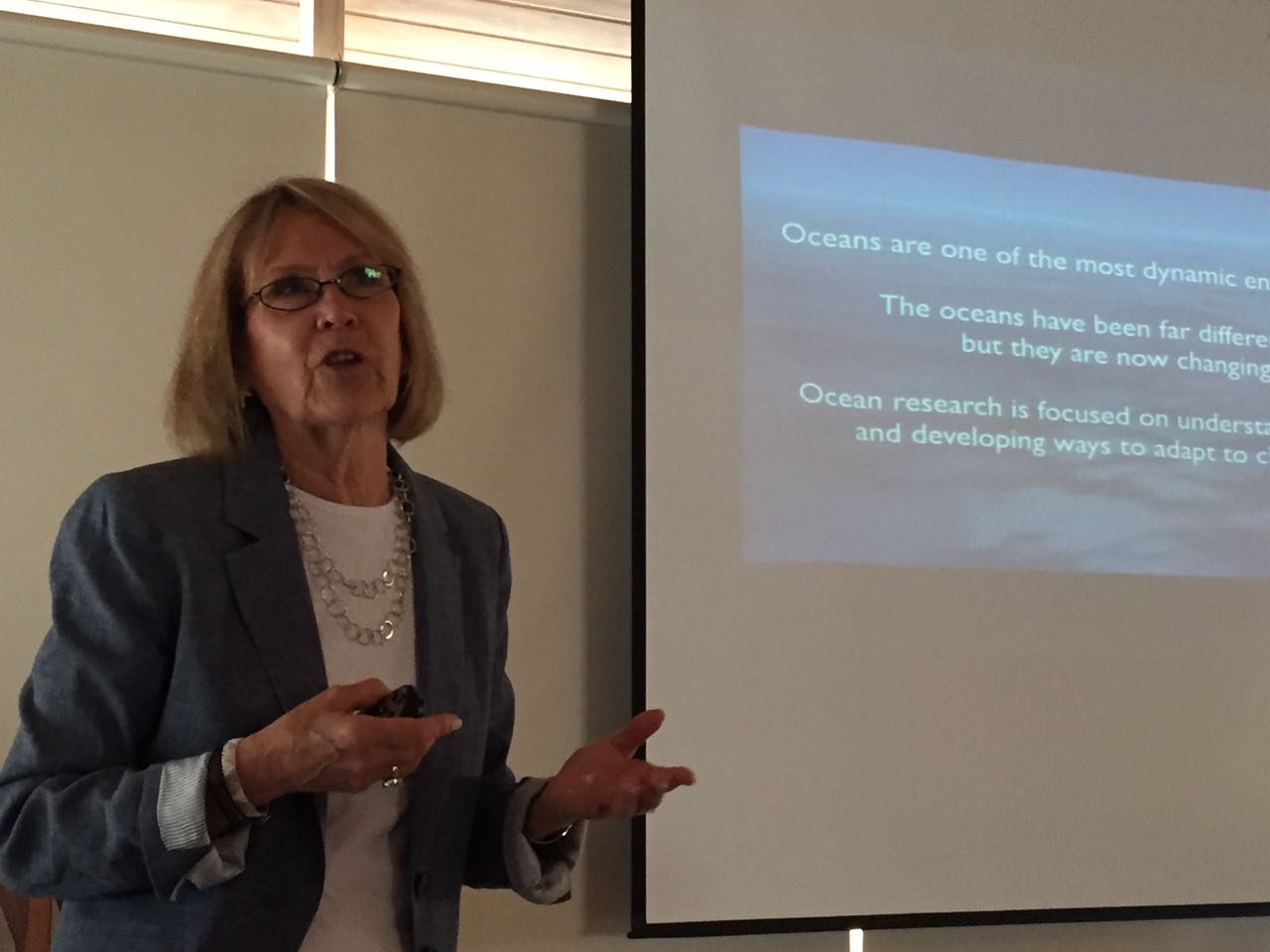Thanks to her stay in Chile as part of the Future Congress 2017, the Special Envoy for science by the United States Department of State, Dr. Margaret Leinen, visited the facilities of the research and teaching laboratory of Universidad Católica, the Station Coastal Marine Research (ECIM, in Spanish).

The also Director of the SCRIPPS Institution of Oceanography at the University of California, San Diego, gave a talk entitled “Understanding our changing ocean” in the ECIM Auditorium before some 60 students and academics of marine biology, engineering and ecology, on understanding and protection of the planet through oceanic and atmospheric explorations.
In it, Dr. Leinen presented how the oceans are the key to many critical challenges facing science and society, such as addressing the impacts of climate change and protecting vulnerable marine species.
She analyzed what we have learned about issues related to the ocean and the climate: the consequences of CO2 (warming, acidification, deoxygenation and rising sea levels), and how the interest of young researchers, agreements such as the one signed in Paris in 2015 and Global organizations are contributing to our understanding of these ocean changes and our ability to adapt to them.
One of the fundamental methods of monitoring the oceans, Leinen explained, is through innovative tools and technologies to monitor them. He highlighted the Argo System, an ocean observation system that provides real-time data for use in climate, oceanographic research and fishing, and which is made up of a large collection of small robotic probes deployed around the world.
Accompanied by the Director of ECIM, Sergio Navarrete, the National Prize for Applied Sciences and one of the founders of ECIM, Dr. Juan Carlos Castilla and the UC Director for Research Affairs Office, María Elena Boisier, as well as Cristián Escauriaza and Christopher Aiken from the UC Engineering and Biological Sciences faculties, which currently collaborate with ECIM in the MERIC Marine Energy Center. The Science Envoy also visited the research laboratories, the UC Future School Library, the interactive aquarium room, and the rooms and kitchens for students and researchers at the Marine Conservation Center.
“Centers of excellence, like ECIM,” commented the North American geologist and oceanographer, “are extremely important because they gather enough critical mass so that people can take on larger-scale and long-term activities as well. They are able to focus on an issue enough to make real progress and a difference, in addition to attracting different expertise to make a multidisciplinary team that leads to completing those investigations”, concluded.
The Coastal Marine Research Station (ECIM), located in Las Cruces, is a research and teaching laboratory of the Pontificia Universidad Católica de Chile, which has an associated Coastal Marine Protected Area (AMCP).
Founded in 1982, ECIM is one of the first coastal marine reserves in the world and one of the first to provide scientific bases for the establishment of marine protected areas, as well as directly leading to the development of pioneering co-management techniques for sustainable exploitation of marine resources in Chile.
Currently, ECIM develops a wide range of scientific research projects that provide useful information for management and conservation policies related to the marine environment in Chile and in the world. In addition, it sponsors a variety of outreach, education and conservation projects, working with local communities and occasionally at the national level.
The station is an active participant in the scientific fields of marine ecology, biology, and coastal oceanography, with numerous international collaborations in the United States, France, Germany, Spain, South Africa, and New Zealand.